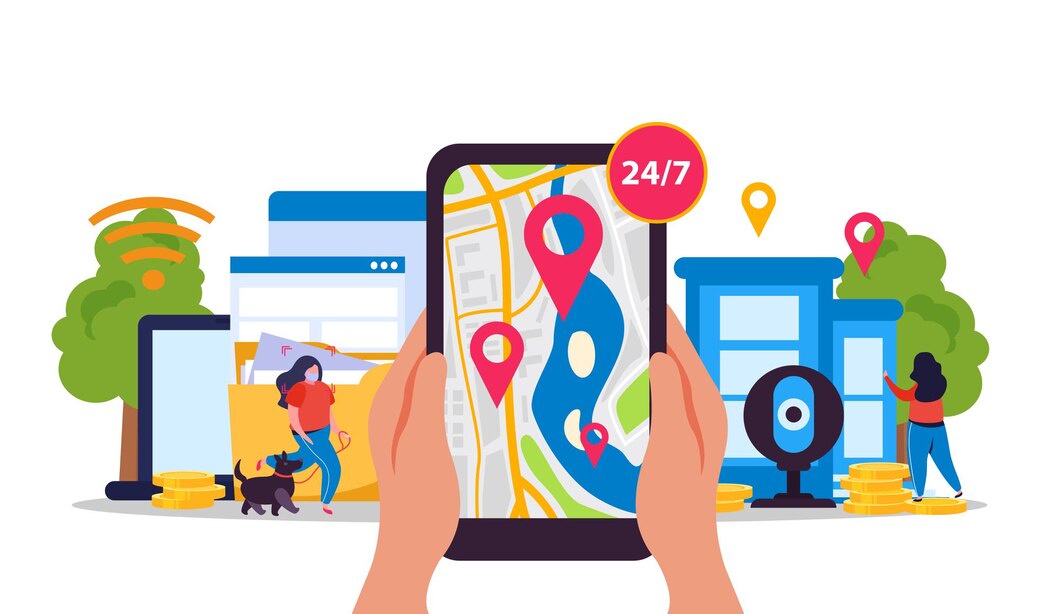Location-based services have become integral to many applications, from mapping and navigation to targeted advertising and personalized content delivery. But how do developers harness the power of geolocation data to enhance their applications? This is where IP address API comes into play, providing developers with valuable insights into users' locations based on their IP addresses. In this article, we'll explore how utilizing IP address API can transform applications and provide users with more relevant and personalized experiences.
Understanding IP Address API
IP Address API, also known as IP Geolocation API, are tools that provide developers with geolocation data based on users' IP addresses. These APIs offer information such as the user's country, region, city, latitude, and longitude, enabling developers to tailor their applications based on the user's location.
Benefits of Geolocation Data
Geolocation data offers numerous benefits for both developers and users. Developers can personalize user experiences, target specific demographics, and enhance security measures. Users, on the other hand, benefit from relevant content, localized services, and improved usability.
How IP Address API Works
IP Address API works by cross-referencing the user's IP address with a database of IP address ranges and their corresponding locations. This process allows the API to determine the user's geographical location with a high degree of accuracy.
Integrating IP Address API into Applications
Integrating IP Address API into applications is a straightforward process. Developers can make HTTP requests to the API endpoint, passing the user's IP address as a parameter. The API then returns the geolocation data in a standardized format, such as JSON or XML, which can be easily parsed and utilized within the application.
Free vs Paid IP Geolocation API
While some IP Geolocation API offers free access with limited features, others require a subscription or payment for full access to their services. Developers should carefully evaluate their needs and budget when choosing between free and paid options.
Common Use Cases of IP Address API
IP Address API finds applications in various industries, including e-commerce, advertising, cybersecurity, and content localization. Common use cases include targeted advertising, fraud detection, content personalization, and compliance with regional regulations.
Ensuring Privacy and Compliance
When utilizing IP Address API, developers must prioritize user privacy and comply with relevant regulations, such as GDPR in Europe. This involves obtaining user consent, anonymizing IP addresses, and securely handling geolocation data to prevent misuse or unauthorized access.
Best Practices for Utilizing IP Address API
To maximize the benefits of IP Address API, developers should follow best practices such as caching geolocation data, optimizing API requests, and implementing fallback mechanisms in case of API downtime. Additionally, developers should regularly update their databases to ensure accurate geolocation data.
Future Trends in Geolocation Technology
The future of geolocation technology holds exciting possibilities, including advancements in indoor positioning, augmented reality navigation, and real-time location tracking. As technology evolves, developers can expect more innovative ways to leverage geolocation data in their applications.
Conclusion
In conclusion, IP Address API offers developers a powerful tool for enhancing applications with geolocation data. By understanding how these APIs work, integrating them into applications effectively, and following best practices for privacy and compliance, developers can unlock new opportunities for personalization and user engagement.
FAQs (Frequently Asked Questions)
Q1. What is the difference between a static IP address and a dynamic IP address?
A static IP address remains constant, while a dynamic IP address can change periodically.
Q2. How can I obtain geolocation data using IP Address API?
You can obtain geolocation data by making HTTP requests to IP Geolocation API endpoints with the user's IP address as a parameter.
Q3. Is there any free IP Geolocation API available for developers?
Yes, there are several free IP Geolocation APIs available, although they may come with limitations on usage or features.
Q4. How accurate is IP Address API in determining a user's location?
IP Address API can provide reasonably accurate geolocation data, typically within a few kilometers of the user's actual location.
Q5. Can IP Address API be used for mobile applications?
Yes, IP Address API can be integrated into both web-based and mobile applications to obtain geolocation data based on the user's IP address.


No comments yet